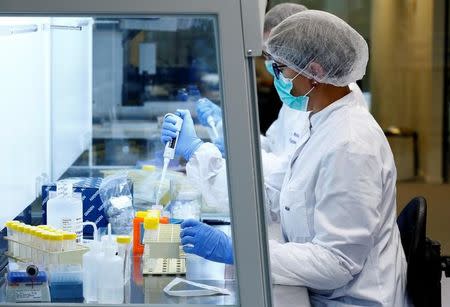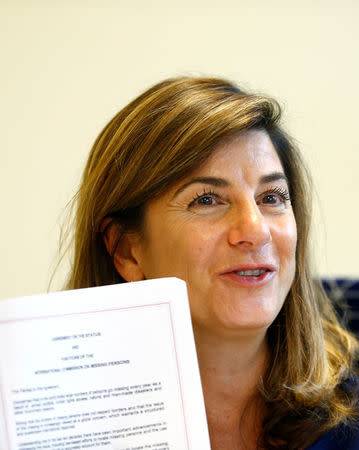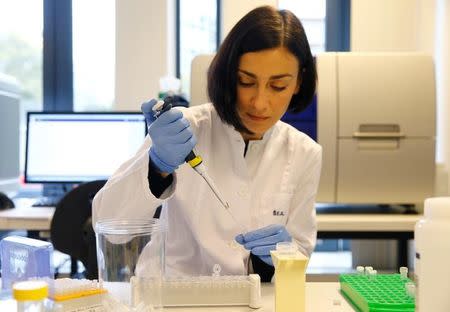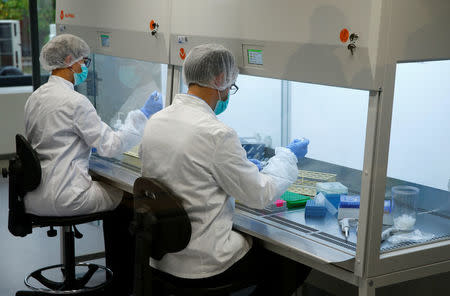Missing persons agency opens high-tech global HQ in Netherlands
By Anthony Deutsch
THE HAGUE (Reuters) - The organisation that identified tens of thousands of victims from the Balkan wars of the 1990s opened a new global headquarters in the Netherlands on Tuesday from where it will take on new cases around the world.
The International Commission on Missing Persons (ICMP), established after the 1995 Srebrenica genocide, will use the latest DNA technology to identify bodies and give families of the missing closure.
There are millions of reported cases of missing persons worldwide, with as many as a million in Iraq, tens of thousands in Syria and Lebanon and many more from Colombia to the Philippines.
"The numbers are staggering," said ICMP head Kathyrne Bomberger. "Moving here increases the perception that we are a global organisation and understand that the issue of missing persons itself is a huge global problem that isn't just in the western Balkans."
The ICMP, which has identified 20,000 remains and provided evidence in 30 criminal trials, will continue to work with war crimes courts in The Hague, including the genocide trial of former Bosnian Serb General Ratko Mladic, who will hear a verdict next month.
The advanced application of DNA technology, which has now made it possible to use samples from distant family members to create comparable DNA profiles, could also be used to help identify undocumented migrants.
"We are now on the brink of a new level of being able to roll out this possibility to missing migrants, including the 10,000 children missing in Europe," she said. "Normally when people go missing from conflict or human rights abuses they are never found."
The ICMP has been asked by Italy to help identify around 8,000 bodies of migrants who drowned trying to get to Europe, but it does not yet have the funding.
One family member the organisation has helped find closure is Ingrid Gudmundsson. The 72-year-old grandmother lost her pregnant daughter Linda and 1-year-old granddaughter Mira when the 2005 Indian Ocean Tsunami hit the Khao Lak resort in Thailand.
"Everything changed in my life," she said in an interview ahead of the opening. "What does a mother do when her family is missing on the other side of the earth?"
Her granddaughter Mira was too young to have dental records, so she provided the laboratory with a toy from which a DNA profile was compiled.
"It was very important to get them identified, all of them," she said, recalling the agony of weeks when they were missing. "Now I have them together in the same place."
(Reporting by Anthony Deutsch; editing by Peter Graff)





